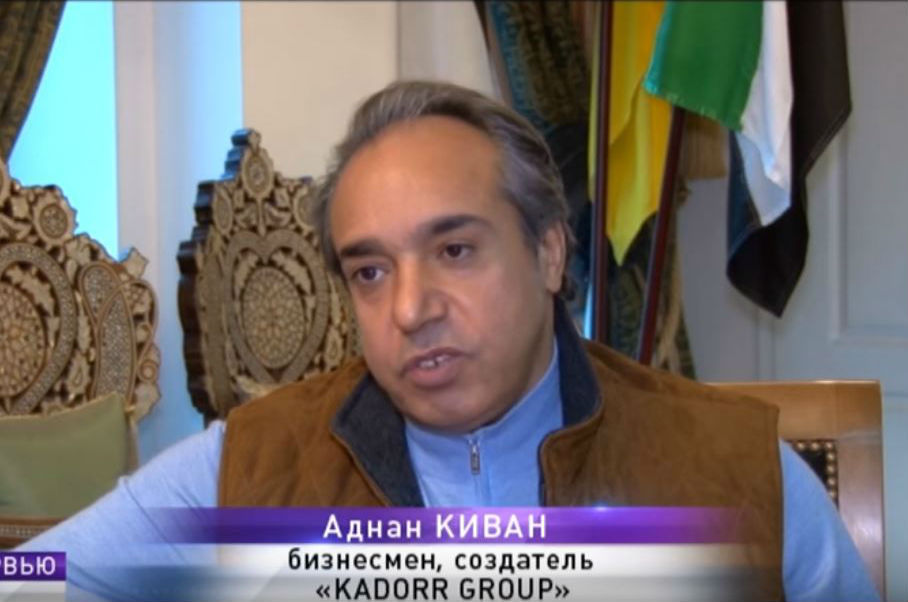 On March 21, the hearts of reformers and journalists sank when Mohammad Zahoor sold the crusading Kyiv Post to Odesa businessman Adnan Kivan. Many were convinced that the new owner would soften the editorial line of Ukraine’s top English language newspaper.
On March 21, the hearts of reformers and journalists sank when Mohammad Zahoor sold the crusading Kyiv Post to Odesa businessman Adnan Kivan. Many were convinced that the new owner would soften the editorial line of Ukraine’s top English language newspaper.
But in an interview March 25, Kivan said he bought the newspaper because of its English speaking, mostly foreign, audience and because he believes in its mission to fight for democracy and against corruption in Ukraine.
He also wants the newspaper to provide a platform to highlight the tragedy underway in Syria, his homeland. Both countries are “victims” of Russia, he said.
“Why did I buy the Kyiv Post? That’s a good question. Frankly speaking, we are always for democracy and I believe the Kyiv Post is the most democratic newspaper in Ukraine,” he said. “That’s the first reason. The second is the Kyiv Post readers are mostly not in Ukraine, and are people who have some influence that can help solve problems here and in the tragedy like Syria.”
“No other television or newspaper in Ukraine can highlight this problem about Syria, the dictator, and how many people have been killed,” he said. He has lost many family members and friends to the war in Syria.
“I admire democracy and I hope soon in Ukraine and Syria there will be peace and democracy….not 70 percent democracy or 80 percent democracy but 99 percent like you have in Canada,” he said.
Rumors swirl that Kivan is aligned with various politicians, and will clip the paper’s wings and remove its editorial independence. But The Post’s previous proprietor Zahoor said in an interview that “a condition of the sale was that the newspaper will continue to live as it does today. I hope he will live up to his promises.”
When asked directly, Kivan said he will retain the paper’s journalistic integrity and that, contrary to floating rumors, he is not aligned with opposition politician Yulia Tymoshenko, Mikheil Saakashvili or other politicians or parties.
“I will not be involved in anything regarding the journalism in the Kyiv Post— such decisions are up to the editor,” he said. “This is because the Kyiv Post today provides a very special service, my English is not great, almost like a church or a mosque if you know what I mean.”
He currently owns a local television station in Odesa and there are reports that he has interfered occasionally in politically sensitive stories. When asked, he said “my television station is as independent as we can make it independent in Ukraine.”
He believes the fight to expose and eliminate corruption in Ukraine is “very, very important,” he said. “I think Ukraine must defeat corruption. We need to do this, it’s easy to do it and all European countries have done that.”
The paper has always lost money, and I asked him if he had a strategy to make it profitable?
“Do I have ideas to make it profitable? Do you think there is any newspaper that makes money?” he said.
Kivan is, like Zahoor, an immigrant who became wealthy in Ukraine. He made his initial fortune in commodity trading then construction, and now employs 12,000 workers. He is a sole proprietor, and he and his family have homes in several countries outside Ukraine, including Syria, Jordan, and London.
“I own my own business by myself and have never had any partners,” he said.
He has, however, had run-ins with various oligarchs and politicians in Odesa who have conducted smear campaigns against him. Zahoor also faced a similar problem when a group tried to take away one of his businesses years ago until the Kyiv Post came to his rescue. Then he rescued it in 2009 and continued its role as a watchdog. Its proprietorship provides some protection but only if the paper remains fearless.
Kivan speaks Arabic, Ukrainian, Russian, and English. After a compliment on his English as well as his sense of humor, he said “please don’t admire my English, I picked it up myself, in business. I love English.”
Like Zahoor, Kivan also came to Ukraine as a student.
“I came 37 years ago in 1980 on the 24th of August—a very special day for Ukraine and for me too,” he joked. This is Ukraine’s Independence Day.
“I studied technology and thank God for that because I became involved in metals, buying and selling outside Ukraine. We sold to Egypt, Syria, Africa, China, all over the world,” he said. “After that, we went into construction and I think we are number one in Ukraine, in quantity and quality.”
He said he is also lucky because he has a “wonderful” wife, three children, and “two amazing grandchildren.”
As for his success, he simply said “it is a gift from God.”
Diane Francis is a Senior Fellow at the Atlantic Council’s Eurasia Center, Editor at Large with the National Post in Canada, a Distinguished Professor at Ryerson University’s Ted Rogers School of Management, and author of ten books.
Image: Adnan Kivan is the new owner of the Kyiv Post. Here he gives an interview on November 17, 2014. Courtesy Screenshot Новости 7 канал Одесса
